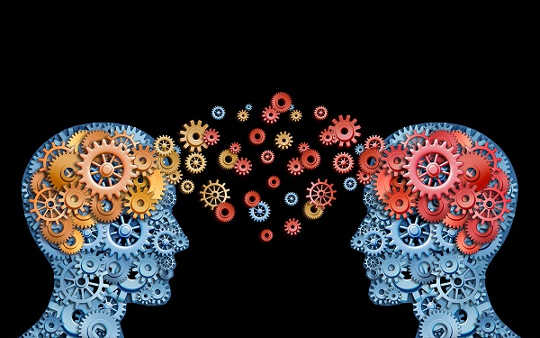
Over the past thirty years, as our Western lifestyles have become increasingly complex, there has been an exponential growth of interest in personal and spiritual development. Each year, in an effort to find satisfaction and happiness amid the pressure of our busy lives, more people are becoming involved in a movement that promises personal growth, inner contentment, and spiritual freedom.
While many of us have been active participants in the myriad traditions and programs on offer, others have been observers of these developments, waiting for an approach that best suits their needs and temperament. As the desire for a better life grows, so too does the range of courses, teachers, and methods available. There are literally thousands of courses on offer promising to improve the quality of our lives. Teachers abound in an enormous range of traditions. Some focus on bridging East and West in their approaches, while others offer unaltered versions from specific schools of spirituality, psychology, and philosophy.
In many ways the very range and complexity of options have been useful. Certainly many people who would not otherwise have been exposed to developing their potential have had opportunities to grow, learn, and establish more satisfying lives. However, this has also created confusion. The enormous range and sometimes inflated promises for happiness and liberation have served to perplex and disappoint many. In our travels teaching in the USA, Europe, Australia, and Israel we meet people who are profoundly disillusioned with the practices they have studied. Many don't know where next to turn, or which advice to take.
Authentic Sources of Inner Harmony & Health
It is becoming obvious that while the existing paradigm has opened up new possibilities for increased happiness and wellbeing, it has also rejected other avenues and perspectives that are genuine and authentic sources of inner harmony and health. As a consequence, we are now witnessing the emergence of a new approach to spirituality and the seeking of freedom.
Most of the assumptions underscoring our current methodologies and practices reflect beliefs that we invented thousands of years ago for the purpose of ensuring our survival and wellbeing. Some of these assumptions are:
-
* We can control what we experience;
-
* We can choose how we act;
-
* The past affects the present;
-
* Our childhood experiences help to shape our personality;
-
* Change requires work and application;
-
* The future can be better than the present.
The main impact of these human potential and self-development movements has been the empowerment of these and other beliefs. They have appropriated -- and then leveraged -- these beliefs in the service of personal fulfillment. Books and workshops teach us how to control our thoughts, manage our lives, create what we want, eradicate the negative experiences of childhood, or replace negative with positive beliefs.
While we don't reject such beliefs, we do question the value of approaches that explicitly exclude beliefs that conflict with our own. We question the capacity of these methodologies to thoroughly and comprehensively address the real cause of suffering, stress, and conflict that is so prevalent in our lives. Since it is these and related beliefs that are being questioned in a new, emerging paradigm, we will briefly examine some of the types of blindness that such beliefs can produce. We offer these observations in the spirit of uncovering, and thereby transcending, the limitations of these systems. Likewise we encourage you to uncover any blindness in our own work.
The Need to Control
There is no arena of life that escapes our efforts to influence, manage, and control. We attempt to manage our relationships, career, thoughts, feelings, and the physical world! We try to alter our experience with drugs, alcohol, religion, meditation, entertainment, and sex, and by participating in various courses and disciplines. We seek to control our staff, our students, and our children. In other relationships, we seek control through more sophisticated and subtle means. We try to manage our careers by cultivating particular friendships. Perhaps we try to influence our clients or mold public opinion by engaging public relations experts.
If we have connected with Asian traditions like Buddhism or Taoism, we might seek to influence our lives by letting go of the need to control every feature and facet of our experience. But even here our "letting go" is for a purpose. "Letting go" is a strategy -- a method -- designed to produce a more mellow and detached outlook on life.
In obvious and covert ways we seek to control our experience and our lives. We continually attempt to modify reality so that it conforms to our ideals and expectations. We cleverly filter out the experiences we want to avoid and contrive to create the ones we desire.
Given this deep-seated need to control, it isn't surprising that most of the methodologies we design and use support this need by teaching "more effective and more powerful" ways to manage and control. However, the need to constantly organize in the name of creating a workable environment is often tiring and sometimes exhausting. We need to have our hands on the wheel, keeping everything in order and under control, for fear that we might lose our direction and autonomy. Managing, organizing, and influencing produces its own stress and conflict.
Change for the Sake of Change?
Another belief emphasized in recent years is that change is valuable in and of itself. Building on a belief that change is inevitable, many methodologies -- both old and new -- teach that we suffer because we don't accept change. We are told that if we accept change, in ourselves and others, we will be happier. We are taught to accept that "the only constant is change." But then we are taken further. We are invited to address our fear of change by learning how to change. We are encouraged to move "out of the comfort zone." Soon we begin to "embrace" change as a challenge to overcome. Then we go still further. We start to seek it out. We seek to do what we presently can't do.
By now the word "change" has a seductive ring about it. Very soon we are on the lookout for a major breakthrough, or are trying to find the next experience to knock our socks off. If we aren't growing, if we can't see change in ourselves from one year to the next, we judge ourselves negatively -- which just proves to us that we must change.
In the absence of a stream of continually new experiences, we may become bored, resigned, or frustrated. We may lose our capacity to appreciate the smaller and simpler changes that are always around us -- in our thoughts and feelings and in the world. The dance of butterflies in the grass or the experience of a gentle breeze on our skin is drowned out by a need for radical stimulation.
Being Fully Present, Moment by Moment
Rather than living in true freedom and expansiveness, we live in a state of contraction. We are constantly on the lookout for something different, forever seeking to alter our experiences, rather than simply experiencing them, as they are. In so doing, we lose our natural ability to be fully present, moment by moment, to who we are and what life is.
Instead of becoming free, as we initially intended, we acquire more stories about who we are, where we have been, and what we strive for. Our need to be somewhere different from where we are leaves residues of dissatisfaction, tension, and over time a feeling of being lost. We become players in an impossible game -- telling ourselves that we can be complete and perfect, but only if we are someone different than who we are right now.
Many methodologies support this drive for change. They speak into the transparent belief that fulfillment, peace, and harmony depend on changing something. We get trapped into changing just for the sake of change, and in so doing we lose sight of what we really want. We create methodologies that suggest "if things were different," "if we gain such-and-such new skills," we will be happier.
We are so accustomed to believing we must change we have reached a point where it is difficult to step outside of these beliefs and freshly ask the questions: "What is the real cause of suffering, stress, and conflict?" And "How can we live genuinely fulfilled lives?"
The Limitation of Methods
We have already observed that we are automatically driven to control our experience in the same way that we drive a car. We try to slow things down when we enjoy what we are doing. We apply the brakes so we can prolong what is pleasurable. When we dislike what is happening, we try to speed up and accelerate our way through the experience. We negotiate our way through the detours of our emotions. We have invented a battery of methods and techniques in order to try and control the content and intensity of what we are experiencing.
As a result, we have methods for suppressing and avoiding emotions we would prefer not to experience (such as fear, vulnerability, and anger) and for enhancing emotions we like to experience (such as joy, serenity, and confidence). Traditional methods for doing this include ritual dance and music, prayer, yoga exercises, and various meditation practices -- such as concentrating on the breath, or reciting mantras, or sex and drugs! Contemporary enhancements commonly include affirming beliefs with which we want to be identified, visualization, ambient music, journaling, catharsis, and breathwork. Certainly these methods produce change. Many of them can guarantee rapid and radical changes to emotions and thoughts. However, there are also limitations in the use of methods that intervene strategically and mechanically with emotions and thoughts.
As soon as we use a method -- any method -- we must manage its application. First, we must determine what is the right or best method for us, and having done so, assess whether or not we are using it correctly. We will track its application, speculate about its effectiveness, and adjust to how or when to use it. We practice the method over and over until it becomes natural, and have to remember to use it whenever necessary. If we use a number of methods from different traditions, we also must determine if the methods are compatible.
When we rely on various methods and strategies for fulfillment we have to assess where we are and what to do next. The methods designed to open us to more fulfilling dimensions of existence may, in fact, have the opposite effect by making us preoccupied with changing our experience.
Spontaneity and Freedom
We may fail to see how formal methods and techniques can condition us to have less spontaneity and freedom. To the degree that we adjust our behavior so that it conforms with our chosen set of practices, we condition ourselves in their use. In time we come to rely and depend on the methods we have learned.
In this way, these methods may interfere with the natural and organic evolution of our lives, since they act as filters between what we are experiencing and what we would prefer. They consolidate a division between who we are and what we experience. Methods and techniques can also constrict us by limiting the range of experiences we can accommodate. Certain techniques will block our naked encounters with various emotions. We may lose our appreciation of the free-flowing and unstructured aspects of life and obscure a more natural source of inner harmony that transcends the use of strategic and technical methods.
In making these assessments about using formal techniques for producing change, we are not rejecting the use of such methods. We are simply observing that methods can have both a positive and negative effect on the cultivation of an alert and responsive way of living. They can both enhance and damage the emergence of a more natural and satisfying approach to life.
Blinded by Seeking Meaning
Another pattern of belief and behavior fostered by many contemporary methodologies is our need to search for meaning and purpose.
We are compelled to understand and explain why we are who we are. We seek causes for our behavior, emotions, strengths, weaknesses, and biases. We seek to understand the impact of our childhood, our education, our parent's problems, our past lives, and more.
We constantly try to orient ourselves in terms of our past history and expectations for the future. We identify with significant stories about who we are, what we have done, and where we think we are going. We offer all sorts of theories and explanations to account for why things are how they are. We search for the deeper meaning behind everything.
We also create meaning and purpose as a carrot to keep us going. We talk about being "on purpose" as though there is a right career and true life path for us to discover and tread. We are in a race to discover the real meaning of our lives. Whether we turn inward as cartographers of inner space, or commit ourselves to the creation of an enlightened culture, we are readily seduced by the romantic connotation of being true seekers, on the road to freedom.
If we don't have a new prize -- an insight or a breakthrough -- to report from our latest adventures, we feel we are lacking in some way. This has us seek out that new workshop which our friends haven't yet done, the latest guru, a new practice, a higher initiation, more peace and ease. For those who believe we are more sophisticated and further along the path than this, we find ourselves searching for the present moment -- as if it is something we could find and experience. We try to be satisfied with what we already have, but in so doing, we are left with a residue of resignation.
This search for meaning and fulfillment can so easily disconnect us from the present. We find ourselves looking for something that we know isn't there, yet we continue to look as though it should be there. This occurs in all areas of life. In close relationships we expect partners to be always loving, sensitive, and caring. In career and work we act as though we should be constantly fulfilled and rewarded. We live in the expectation that there must be more than what we presently have. Yet seeking for something that isn't there, and an expectation that life should be different than what it is, are the very barriers that disconnect us from present fulfillment and ultimate completion.
Inevitably we become blinded by seeking. This blindness leads to failing to appreciate that we could find what we are looking for if we would just stop looking!
Fulfillment Means Getting Something
An underlying assumption that inspires many to develop the capacity for living fulfilled lives is the belief that fulfillment depends on gaining something. Fulfillment is seen as a function of acquiring some ineffable thing -- and when we "get it," we will be fulfilled. We may think of this in terms of knowledge, wisdom, skill, capacity, experience, or a way of being. No matter how we think about it, if we don't gain this experience or understanding, we cannot be truly fulfilled. As long as we sense that this "thing" is elusive and ineffable, we are still clutching the belief that if only we could read the right book, find the right teacher, or attend the right course, we would be happy.
Certainly we can acquire valuable experience and skills in the course of our lives that help us manage and cope with the demands of living. But rarely do we question whether or not there is any experience or skill that could really fulfill our hopes for peace and contentment. It is unpalatable -- even absurd -- to think that there is nothing we need to acquire in order to be happy and complete. We reject the possibility that there is nothing that could finally -- once and for all -- bring fulfillment. We can't even experiment with an approach to life in which there is nothing else we need to get, including understanding what this might mean.
Instead, we continue to believe that there is some special quality, experience, or skill that will fulfill all our needs. And so we continue to suffer, and to feel the stress of our very seeking.
This article was excerpted from:
 Essential Wisdom Teachings
Essential Wisdom Teachings
by Peter & Penny Fenner.
Reprinted with permission of the publisher, Nicholas-Hays, Inc. ©2001. www.redwheelweiser.com
Info/Order this book.
About The Authors
Peter Fenner is the founder of the Center for Timeless Wisdom. He has a Ph.D. in Buddhist studies and was a monk for nine years. He has taught Buddhism at institutes and universities for more than twenty years. Penny Fenner is the Director of Timeless Wisdom and the founder of Skillful Action. She is a psychologist who works with individuals, couples, groups, and organizations. She has been actively involved in establishing Buddhism in the West and in bridging boundaries between East and West.
Related Books
at InnerSelf Market and Amazon
























